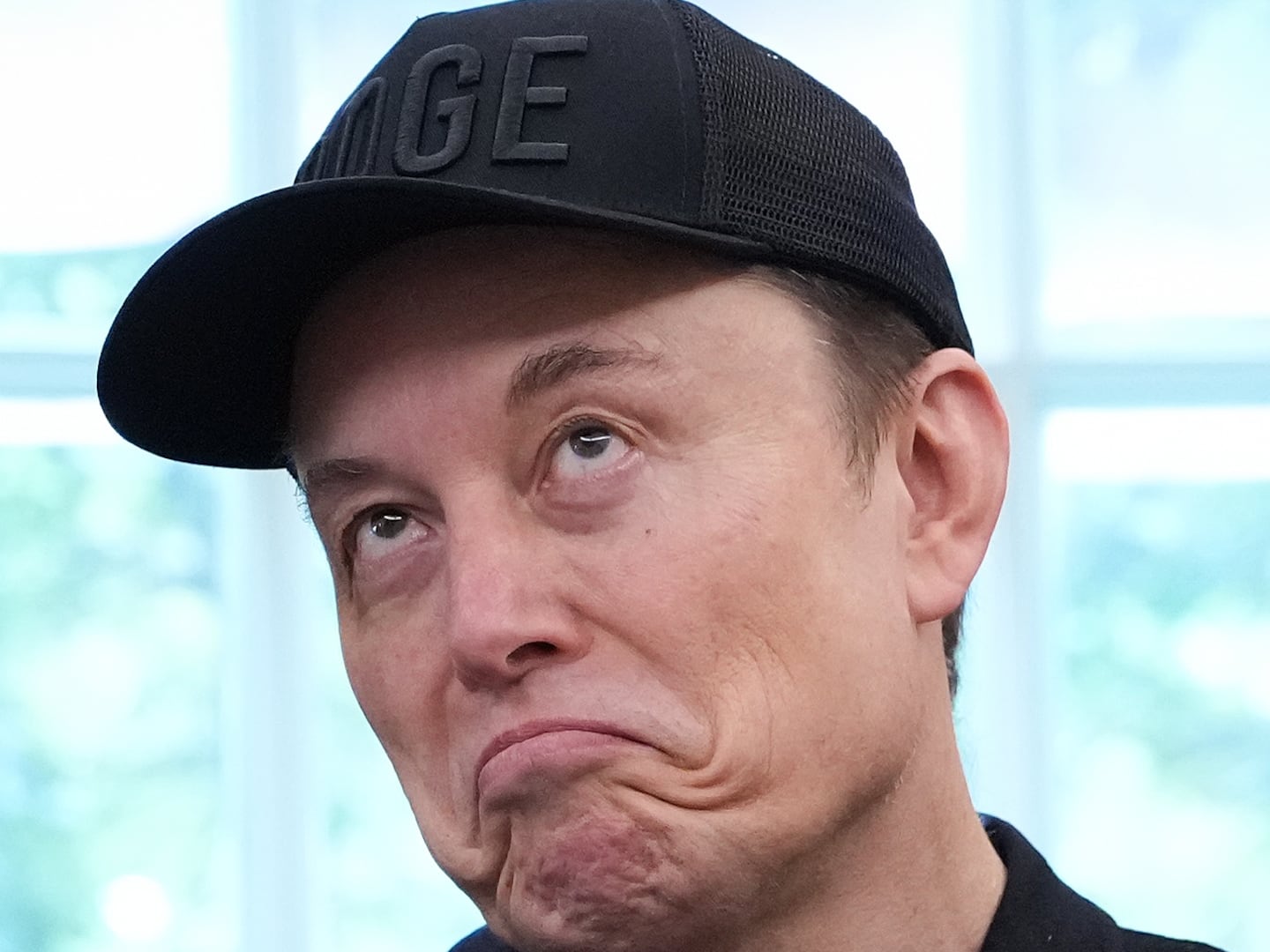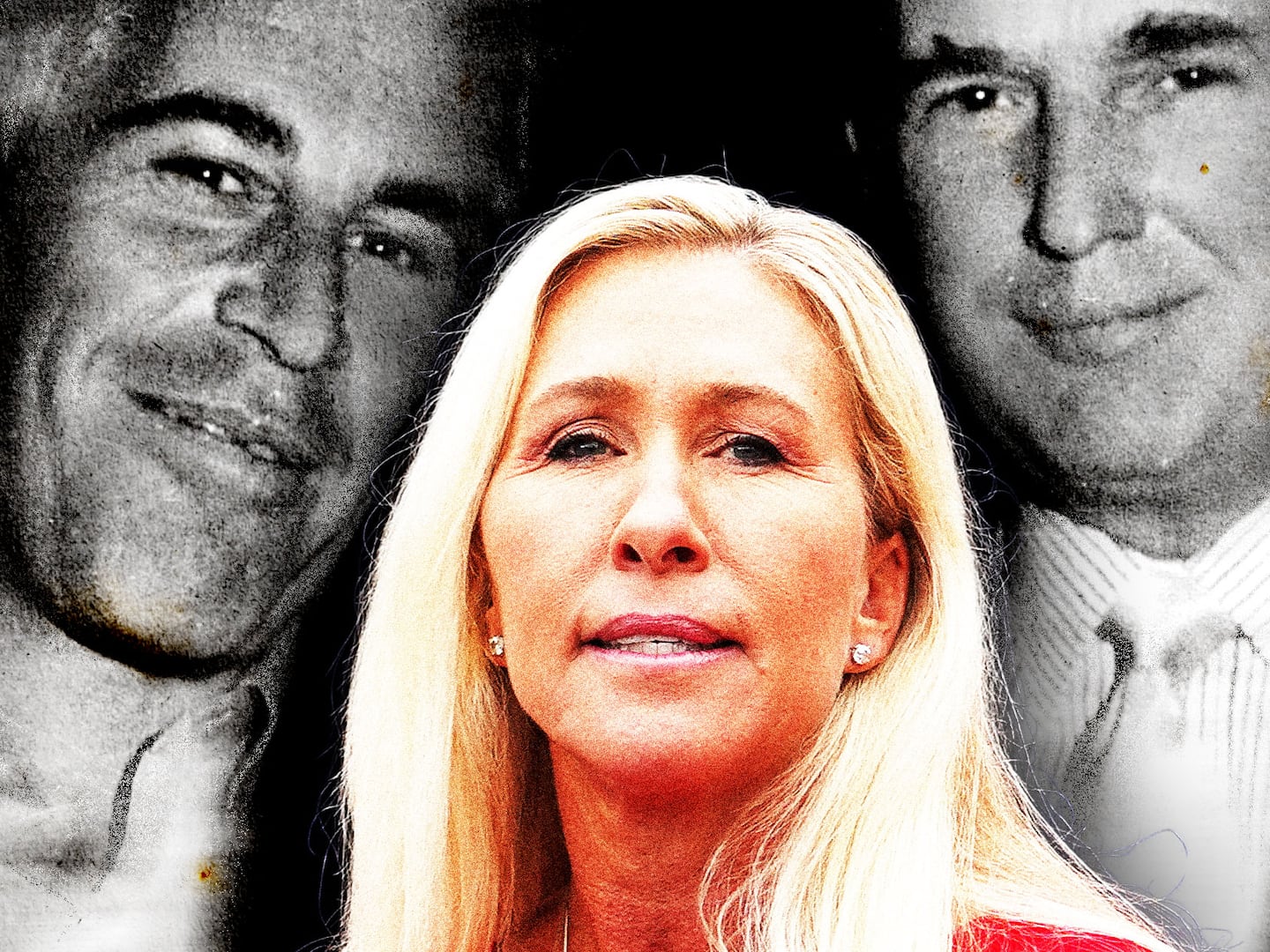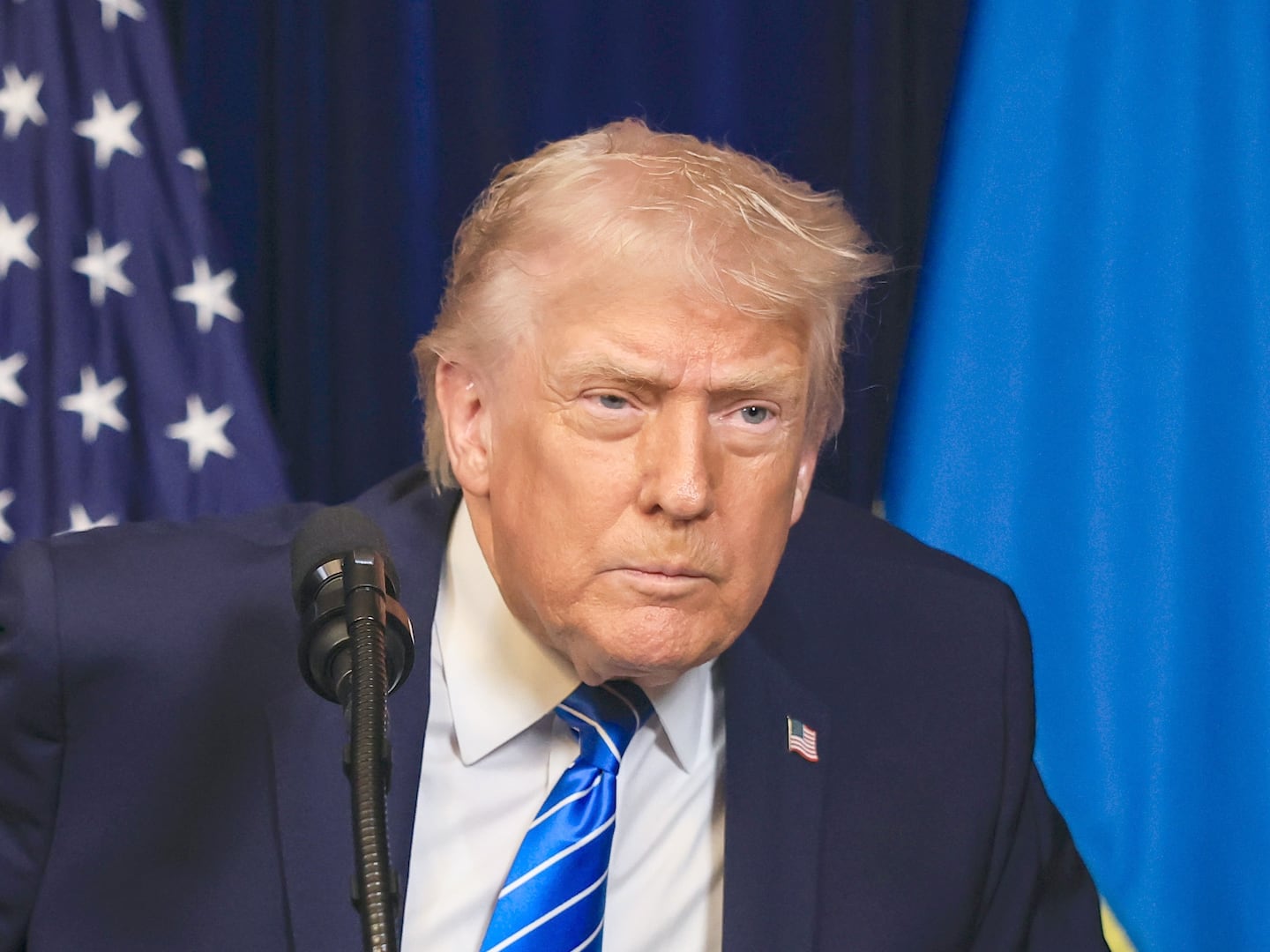Lincoln Chafee is not a very busy man.
Getting him on the phone is not particularly difficult, and he will graciously remain on the line until you’ve asked all your questions. In the next three weeks, he has just three public events on his schedule: two meetings with local Democratic groups in New Hampshire and one appearance in Iowa, at the Democratic Party’s Hall of Fame ceremony. For a former governor—which Chafee, who served one term as Rhode Island’s executive, is—a spare dance card is not atypical.
But Chafee isn’t in retirement. He’s running for president.
If you’ve heard of him at all, you may know that Chafee is a Republican, turned independent, turned Democrat who was appointed to the Senate after the death of his father, John Chafee. He looks like a cross between Jeff Daniels and Steve Doocy, with a demeanor reminiscent of Ron Paul.
Those who know Chafee call him “Linc” for short. The last of a dying breed of liberal Republicans, he earned the distinction of being the only GOP senator to vote against the war in Iraq. He placed a symbolic vote for George H.W. Bush for president in 2004, as a means of expressing his disapproval of W. Later, in his time as Rhode Island governor during the Great Recession, he earned the nicknames “Governor Gump” and “Governor Grinch,” the latter after a fight over what to call Christmas trees.
Chafee announced his campaign for the Democratic nomination on June 3 during a foreign policy speech at George Mason University in Virginia, in front of fewer than 100 people. The address was supposed to set Chafee up as the anti-war alternative to Hillary Clinton, but that message was somewhat overshadowed by his call for America to “join the rest of the world” and convert to the metric system. “I happened to live in Canada as they completed the process,” Chafee smiled as he prepared for his punchline. “Believe me, it’s easy. It doesn’t take long before 34 degrees is hot.”
Since the announcement, Chafee has remained in the Northeast. His campaign strategy, he told me, is to focus on New Hampshire and Iowa first, but “being in Rhode Island, New Hampshire’s a lot easier.”
“We’re not a high-budget operation,” he added. Yet he has been vocally indifferent about fundraising. His wife, Stephanie Chafee, was the biggest donor to his gubernatorial campaign.
Chafee doesn’t seem to have an interest in putting together a traditional campaign staff, either. The Chafee 2016 operation consists of two people: Debbie Rich, his communications director who has been with him since 1997, when he was mayor of Warwick, and Jonathan Stevens, his campaign manager and best friend since first grade. Oh, and there’s also “a strong core of loyal volunteers,” according to Rich.
His foreign policy advisers are mostly “friends that care about these issues” and “professors,” he said.
Perhaps it’s no surprise, then, that he is polling at around 1 percent.
“I think it’s a little unusual, what he’s doing,” Michael Trainor, a former Chafee spokesman, told me. “He’s got a very naïve understanding of running a national campaign. He may just want to have his views on some of these issues register, but the question, to me, is: Does he intend to mount a credible campaign? And I don’t see it.”
***
Chafee was born on March 26, 1953, to an affluent family in Providence, Rhode Island. His great-grandfather, Henry Lippitt, great-great uncle, Charles Warren Lippitt, and father, John Chafee, were all governors of Rhode Island. A Republican, John Chafee left that post, which he held while his son was in elementary school, to be the secretary of the Navy under President Nixon and then, finally, a senator.
From his father’s political career, Chafee said, he learned that “there’s always room for compromise, but if you feel strongly about something and the quest for the compromise is taking you beyond your convictions, it’s not worth it.”
In the eighth grade, Chafee was elected to his first position: class representative. The following year, he enrolled at Phillips Academy, the boarding school in Andover, Massachusetts. There he became friends with a classmate named Jeb Bush. “In the 10th grade, we were in a dorm with only 11 students,” Chafee remembered. “In the course of that year, we got to be good friends, I’d say.” Chafee and Bush talked about politics, he told me: “It was national issues, then, with Vietnam and so much going on. Both our fathers were Republicans, so we had something in common.” They lost touch after high school, Chafee said, and wouldn’t cross paths again until decades later, in Washington, when Chafee was a senator and Bush the governor of Florida, testifying in front of a committee Chafee served on.
Chafee went on to Brown University in Providence. He would admit, during his 1999 campaign for the Senate, that while there, he experimented with cocaine. “I knew the question was going to come up,” Chafee told me. Then, he chuckled: “I wanted to answer it as bluntly as possible.”
After graduation, like many young adults in the mid-’70s, Chafee wanted to do something different. “I had worked summers in construction as a laborer,” he said. “I always admired the tradespeople and thought after college I wanted to continue that life and get a skill.” He went to a trade school in Montana, where he “got mildly competent” at horseshoeing and then “very lucky” when he was hired to work at a racetrack. He ended up in Alberta, Canada, where he remained for seven years. He’s wistful about this time of his life. “I think I put shoes on 5,000 horses,” he said, “I loved it.”
***
Chafee returned to Rhode Island and in 1986, he entered politics—a Republican like his father. He was elected to the Warwick City Council, where he would remain until he became mayor, in 1992.
Meanwhile, nationally, the Republican Party began a transformation that would leave little room for politicians like the Chafees. The Clinton era saw Northeastern Republicans and Southern Democrats gradually become endangered species, as the Republican Party anchored itself in the South.
“Just hearing from my dad about that group that came over from the House into the Senate,” Chafee remembered. “They didn’t have much patience for anybody that wasn’t 100 percent on agenda…It didn’t used to be that way. It got to be pretty militaristic.”
In October 1999, the elder Chafee died of congestive heart failure at 77. Obituaries remembered him as the “Senate centrist.” For John Chafee, President Clinton said, “civility was not simply a matter of personal manners. He believed it was essential to the preservation of our democratic system.”
What he learned most from his father, Lincoln Chafee said, was that everything in his political career “came down to just his courage.”
Chafee was appointed to serve the remainder of the Senate term. “I knew when I got in, in 1999, that—uh, a little bit about the atmosphere there and the partisanship,” he said. “I had, I think, a pretty good idea of what I was getting into.”
What he got into, it turned out, would make up the entirety of his case for his presidential campaign 15 years later.
***
“Even before the Iraq War, I’d set my course,” Chafee explained. The pro-choice, fiscally conservative, environmentally conscious, endangered species-protecting, skeptical-of-U.S.-military-intervention convictions he held then and now, his “bedrock” convictions, did not align gracefully with the Bush-Cheney doctrine from the start.
He was cordial with members of his party, he said, and he attended the right lunches and events, but “by the time the Iraq War came, in October 2002, they knew I was a pretty independent voter.”
In his presidential announcement speech, Chafee outlined the “primary three” reasons for his decision to become the only Republican senator to vote against the war. The first was his fear that it would be for the next generation what Vietnam had been for his. Second, “I had learned in the nine months of the Bush-Cheney administration prior to September 11 not to trust their word.” Third, the war in Iraq had long been on the “hawks’” wish list, and a visit to the CIA convinced him “there was no intelligence” that made the case for intervention.
The fact that Hillary Clinton did not arrive at the same conclusion is the central component of Chafee’s campaign platform.
“You always assume that different things, scenarios, can occur,” Chafee said when I asked if he believed he could win the Democratic nomination. “My assumption has always been that Secretary Clinton is not going to be the nominee. Different things are going to catch up with her. The Clinton Foundation, the emails, and I’ve always thought the Iraq War.”
In the current foreign policy debate, Chafee sees the case for Chafee 2016.
“I think as the neocon approach so damaged our American credibility [and] as we saw there were no weapons of mass destruction, and as we saw chaos engulf the region, I suppose that’s when I started thinking, ‘What this country needs is the people who had the courage, under moments of high pressure, to make good decisions.’” By which Chafee means, of course, someone like him.
Jeb Bush, Chafee said, made the Iraq War all the more relevant by saying he would have made the same decision his brother did. “That’s my issue—where we fit in the world and international approach,” Chafee said.
Clinton, he argued, would be “too much of a continuation of the Bush-Cheney approach to the world. It’s too much of a continuation of that hawkish approach. There have been several articles about her closeness with the neocons, and that’s my biggest concern.” (Chafee said he mostly reads The New York Times for international coverage.)
Asked how he would handle ISIS, Chafee told me he would not support the airstrikes in Iraq and Syria that have been endorsed by the similarly intervention-apprehensive Rand Paul, who is seeking the Republican nomination. “I call them extra-judicial assassinations,” Chafee said of drone strikes. To combat ISIS, he said, “I believe first we have to understand who they are.” He claimed ISIS is “evolving” from the “absolute barbarism” that first got the world’s attention.
***
Beyond foreign policy, Chafee told me he wasn’t very impressed by Clinton’s performance in the Senate. “She liked to go her own way,” he remembered. “You have to work to get her to compromise, and she likes to do it her way…The truth is, if you look at Hillary Clinton’s career, there aren’t a lot of accomplishments. Certainly, health care back in 1994 is a perfect example. There were a large number of Republicans, my dad being one, that wanted a health-care bill, and she was very uncompromising back then. As a senator and as a secretary of state, you would have to try very hard to find some accomplishments, and that speaks for itself.”
But it's only on the topic of international relations that Chafee can attempt to differentiate himself from the other candidates – and even then, it's a stretch to suggest he has something to offer that no one else does. Bernie Sanders voted against the Iraq war, too. Chafee can only argue that his nay was of more consequence and required more courage because of the R- next to his name at the time it was cast.
So Chafee's bet is this: Clinton will falter, and foreign policy will become so important to Democratic primary voters that he will surpass Martin O’Malley, the former mayor of Baltimore and governor of Maryland who oddly enough helped, while chairman of the Democratic Governors Association, to convince the then-independent Chafee to join the party. (O’Malley’s campaign said he would not be available to discuss the matter) and he will trample Sanders, the much better known Senator from Vermont who is polling competitively with Clinton and who history also shows was correct about Iraq.
For this to work, Chafee's opposition to the war would need to be compelling enough that no one would bother to notice his record as governor of Rhode Island, which received mixed reviews at best – something which will only get harder for him as he continues to criticize his opponents. Of O’Malley, Chafee told me, “he is going to have some issues” with his policies on crime in Baltimore, which he characterized as “a short-term benefit” whose “long-term effects were dire.”
“Most people think that Linc Chafee was an honest guy who was certainly interested in making the state better, but he lacked the tool kit for strong leadership,” Wendy Schiller, a professor of political science at Brown, told me. “When I say the tool kit, I mean he’s not a great public communicator and he’s not interested in horse trading, and when you are governor in a state with a powerful legislature, you have to horse trade.”
People grew frustrated with Chafee, Schiller said, because his time in office was “viewed as a wasted opportunity for the state of Rhode Island for four years. I think people will say he’s a nice guy, but they’re very disappointed that he didn’t step up.”
Facing a primary challenge, Chafee decided not to run for a second term. Nevertheless, he told me that he felt like he could leave the office to focus on national and international issues because he had gotten the job done. “I said, ‘I can leave my governor’s job. We’re going in the right direction in Rhode Island.’”
Chafee did admit that he regretted the Christmas tree debate, however.
In December 2011, Chafee, who is Episcopalian, told a staffer in his office to just use the same tree lightning invitations the previous governor had sent out. They referred, he didn't realize, to a "holiday tree." Chafee ended up being branded "Governor Grinch" by a Republican legislator, and told "They're not happy with you governor!" by a livid Bill O'Reilly on Fox News.
Chafee now says he should have fostered a healthier discussion on the issue, which meant more to Rhode Island's Catholic residents than he realized at the time. Still, he said, “I kind of wanted to call it a holiday tree… It’s a public building.”






